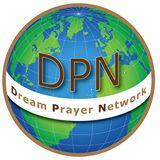
I will give you hidden treasures, riches stored in secret places, so that you may know that I am the LORD, the God of Israel, who summons you by name. Isa 45:3
I’ve made the same bold declarations to incoming Bethel College freshman for over ten years. My students have been a mix of 18-year old high school graduates and adult learners of all ages.
I hand them the Old Testament (OT) Survey syllabus and -with no introductions- fire away: “This is one of the greatest courses you will ever take in your life! “

“The OT is real, raw, and relevant, and is pregnant with meaning! You will be a different person by the end of the semester!”
I am sure they are wondering, “who in the world is this guy?!!” By the end of the semester, the vast majority of them believe.
They believe and become different people because they’ve spent 15 weeks uncovering hidden treasures.
Few Christians have an appreciation for the treasure hidden in the OT. We are going to unlock some of that treasure in this article.
You see, there is a key that unlocks the door to divine revelation. Before we reveal the key, let’s do a quick review of the past two weeks.

“If God promised to guide you, tell you, speak and declare to you, then why would He make it hard for you to hear His voice?” (John 16:13-14)
If you desire to become familiar with God’s Voice: 1) be born again; 2) know God’s word; 3) love God’s word; 4) practice a lifestyle of humility; and establish your “need to know.”
The need to know is critical. God will rarely speak to you if you aren’t going to do His will. Now let’s move forward. The key that unlocks the door to divine revelation is worship.
The salvation story in the OT begins with a family. Abraham is head of this family. His family endures generations of hardship, struggle, and 400 years of slavery. The family’s emancipation from slavery is also its birth as a nation-the nation of Israel.
God chose Israel above all the nations on the earth because He loved them, and to keep the promise He made to Abraham. (Deuteronomy 7:7-8) God’s only requirement of Israel was to worship Him. Jesus summed up all of the instructions given by the OT law and prophets:
“You shall love the Lord your God with all your heart, with all your soul, and with all your mind.’ This is the first and great commandment. And the second is like it: ‘You shall love your neighbor as yourself.’ (Mark 12:30-31)
Here Jesus describes what worship to God is, and those who set their hearts and minds to worship Him, unlock the door of divine revelation.

Those who enter the storehouse of God’s riches are not impressed with themselves. They are humble servants of God eager to express their worship to Him by serving others.
Worship involves giving thanks to God out of a pure heart. Worshippers actively pursue God. They desire to know Him.
Some think of worship as singing, dancing, shouting, praising, serving, etc. They are correct because worship to God can be expressed in these ways.
But outward expressions only become worship when their intended purpose is to give glory to God. Allow me to transition here to address some important related issues.
The way people describe worship can draw people near to God or repel them from God. Allow me to explain.
Over 20 years ago, our church’s prayer ministry was led by some great women of faith. I was blessed by their leadership, but I occasionally struggled with the way they described worship.
I did not want to be rocked in “Daddy’s Arms,” feel a “warm embrace” or have God “kiss me on the cheek,” etc. Now there is nothing wrong with these expressions, but our examples and illustrations must be more inconclusive.
Admittedly, for years I viewed worship as being soft and feminine. I struggled relating to their very genuine expressions of their love for God. As a prayer leader myself, this attitude toward worship hindered me, but I grew and learned.

In the OT, men of God worshipped Him on the verge of battle, and during mortal combat. Men of God also worshipped God in the aftermath of bloody conquests.
These men were not waiting for a warm embrace. Their acts of worship included combating fear, accepting risk, caring for wounded comrades, and shouting chants of faith like: “let God arise, His enemies be scattered!”
Ultimately worship is an inner attitude that finds outward expression. What expressions does God like? He likes and receives authentic expressions of your love for Him.
Strive to express your devotion to God in ways that reflect the person He has made you to be. Be Real!
Worship is the thread that ties together OT figures that God spoke to regularly.
As noted previously, you can worship in singing, in the playing of instruments, in dancing, in prayer, in the giving of thanks, and in the lifting of our hands to honor God.
You can see acts of worship in expressions of faith, in the giving of material possessions, in self-sacrifice, and in boldly speaking God’s truth to unreceptive individuals or audiences.
The motivation of worship can be judged by this one standard: “Love the Lord your God with all your heart, with all your soul, and with all your mind and, love your neighbor as yourself.”
“I will give you hidden treasures, riches stored in secret places, so that you may know that I am the LORD, the God of Israel, who summons you by name.” ( Isa 45:3)
Worshipers receive God’s hidden treasures, and riches stored in secret places. Worshippers know God.
Cultivate the art of hearing from God by worshipping Him daily. Next week we will reveal more hidden treasure that relates to hearing from God. Exciting times await. Until then, God Bless! Press On!! Kevin







